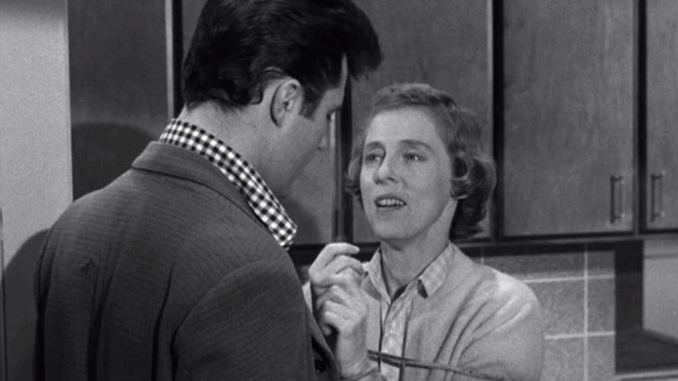
Not all was harmony behind the cameras of The Beverly Hillbillies. While the show projected an image of rustic charm and family unity, cast members were, in reality, very different personalities with their own views on comedy, acting, and professionalism. One of the lesser-known but persistent stories involves the long-running tension between Nancy Kulp, who played the prim and proper Miss Jane Hathaway, and Max Baer Jr., who brought to life the dim-witted yet lovable Jethro Bodine.
On screen, their interactions were a highlight of the series. Miss Jane’s exasperation at Jethro’s cluelessness made for excellent comedy, giving audiences the classic “straight man versus fool” dynamic. Behind the scenes, however, the relationship was more complicated. By several accounts, Baer occasionally poked fun at Kulp in ways she found belittling. He was broad, boisterous, and inclined toward slapstick humor, while she was well-educated, refined, and deeply serious about her craft. The clash of styles—and perhaps egos—was inevitable.
Kulp, who held a degree in journalism and had once worked as a television producer, was not merely an actress filling a role but someone who approached the profession with intellectual rigor. Baer, in contrast, saw Jethro as his golden ticket in Hollywood and leaned fully into the silliness the part demanded. While this contrast made their on-screen dynamic sparkle, it reportedly caused friction when the cameras stopped rolling.

The tension resurfaced years later, long after The Beverly Hillbillies had ended its nine-season run. In the 1980s, Nancy Kulp made a bold and unexpected career move: she ran for Congress as a Democratic candidate in Pennsylvania. At a time when celebrity political bids were rare, her candidacy drew national attention. Yet instead of receiving support from her former castmates, she faced sharp criticism from Max Baer Jr. He publicly mocked her campaign and suggested she was unfit for political office, remarks that many found unnecessarily cruel and deeply personal. Some observers believed his comments were rooted in their long-standing differences, while others saw them as an unfortunate attempt at publicity.
The feud was striking precisely because it contrasted so sharply with the public image of The Beverly Hillbillies. Fans who had grown up watching the Clampetts were disillusioned to discover tensions simmered within the “family” they thought they knew. For her part, Kulp handled the situation with grace, refusing to engage in a public war of words. She continued her campaign with dignity, though she ultimately lost the election.
Still, the lingering discord never managed to overshadow the legacy of the show itself. Both Kulp and Baer remained indelibly linked to their characters. Their chemistry on screen—Miss Jane’s polished intelligence clashing with Jethro’s oafishness—worked precisely because it mirrored the real-life friction between them. In a strange twist, their off-screen differences may have fueled the authenticity of their performances, giving fans a dose of “art imitating life.”
Decades later, the story serves as a reminder that television magic often comes at a cost. The Beverly Hillbillies offered viewers laughter, warmth, and a sense of family, even if the reality behind the set was less harmonious. Nancy Kulp and Max Baer Jr. may not have been friends, but together they created a dynamic that helped cement the sitcom’s enduring place in pop culture history.